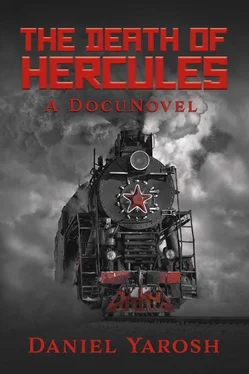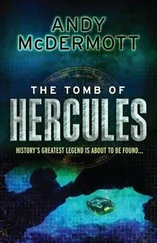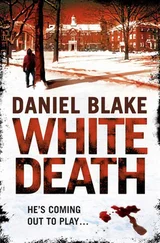They spent only a moment with most passengers, until they came to Max.
Their commander looked him up and down, obviously taking in his military age and civilian clothes. “Wh-wh-who are you?” he stuttered.
“I am Max Shertok,” Max replied respectfully in his native Russian.
“Wh-wh-where are you g-going?”
“I am returning to my command in Odessa.”
“Where are you c-c-coming from?”
Max launched into his prepared story, and his authentic Southern Ukrainian Russian accent obviously impressed the leader and troops. Max told them he had joined the Red Army in Odessa and had been assigned to a unit at the front as a driver for an officer. Of course, the officer was an idiot and had no idea where he was supposed to go. He directed them on a wrong turn and ended up in the middle of the Austrian army. “The durak !” (fool) he spat. The officer was killed, and he was taken prisoner. He was able to escape easily just a week ago as their army collapsed and retreated. He had stolen some cloths and money from an Austrian sympathizer in the nearby town. Now he was headed back to his enlistment base. His mention of money raised eyebrows.
“Yes, yes,” Max exclaimed, reaching into his coat pocket and pulling out a small wad of Austrian krone. “See?” and he began to hand over bills to the soldiers, as if they validated his story.
“Enough,” barked the commander, and he slapped the bankroll to the ground. “Ta-take him outside!” Two soldiers reluctantly lifted him from his seat, glancing a few times at the money on the floor. They gingerly led him to the front of the cabin while the leader and the four remaining soldiers continued down the aisle.
Outside, they stood waiting for the leader to return, in a casual triangle hunched against the cold. One of his guards did not have a rifle but rather a pistol tucked in his belt, while his left arm dangled uselessly at his side. He had dark eyebrows, deep set eyes and a broad black mustache. Max glanced to the front of the train, where he could barely make out by lantern light a man kneeling on the ground two cars down and soldiers standing over him. Suddenly, a pistol shot rang out and the prisoner keeled over. His guards paid little attention, shifting from foot to foot and blowing onto their frozen hands. Another day of duty to the Motherland.
At last, the leader emerged from the train door and walked toward the group. The last soldier held Max’s weather-beaten suitcase and a lantern.
“Sholom,” the leader said to the soldier with the bad arm, “ta-take him to camp”. He gestured at the suitcase to indicate that it should go too.
“Wait, wait!” Max cried out. He turned to the leader, “Comrade, a word alone, if you please?” The captain put on a pained look, then waived the other soldiers away and took the lantern. As he did, Max unbuttoned his rear pocket and reached in, withdrawing the Cheka pass Deena had given him.
“I am on a secret mission for the Commissariat,” Max whispered in the leader’s ear. “I cannot tell you anything more, but I must be allowed to pass.” He handed him the paper.
The leader took the paper, set down the lantern and unfolded it. He glanced at Max before reading. Passes were a sensitive matter among Anarchists and Bolsheviks after September 1918. In the Bruce Lockhart affair, the British agent was accused of giving fake Cheka passes to two Latvian agents who used them to smuggle Fanya Kaplan into Moscow, where she shot Vladimir Lenin on August 30. In the ensuing Red Terror, Lenin’s entire security team was executed. The captain pulled the paper close to his eyes, held it back over the lantern and rubbed the signature with his thumb. He then quickly withdrew his pistol from his belt, put it against Max’s temple, and ordered him to the ground.
Max kneeled. “No, no, I can help you!” he shrieked.
The captain ordered Max’s suitcase searched, and they spilled the contents on the frozen tundra. Nothing of interest, except, a shirt, trousers and a handkerchief. A small pocketknife fell out.
“I am a mekhanik (mechanic ) ” Max pleaded. “I can help!”
Then one soldier picked up the pocketknife, flipped open the blade, and began to cut the lining of the suitcase. He turned the case upside down, shook it, and a small piece of paper fluttered to the ground.
Max’s US army identification card. His last hope to return home.
The commander picked it up and examined it by the lantern light. No doubt it was not a Red Army issued ID. The top lines, in large English capital letters read
“AMERICAN EXPEDITIONARY FORCES.”
He drew his pistol and raised it to Max’s skull.
Sholom grabbed the ID card from the commander’s hand and held it to the light. “Max Shertok,” he read. The next line was rank. “ Ryadovoy ”, he translated, nodding to the word “Private.” The next line was “Duty”.
“ Mekhanik ”, Sholom read.
Max knelt shaking and shivering for an eternal instant. Sholom lowered his head close to the leader’s ear and murmured while the pistol remained leveled at Max. The Anarchist unit was in desperate need of mechanics. The soldiers had in fact marched five miles from their camp in the freezing night air, and then cut down trees and put them the tracks to stop the train, because most of their fleet trucks were broken down. Many heavy machine factories in Russia were on strike and in open revolt against the Bolsheviks because of their harsh treatment of the workers. Parts and repairs were impossible to obtain. This Anarchist ally of the Bolshevik Southern Defense Force was reduced to a peasant militia.
“Sholom, ta-ta-take him to ca-camp,” the commander barked.
After the Anarchist unit completed their action, executing a few White Russian and Ukrainian army deserters and conscripting the Red Army deserters, they trudged the five miles back to their encampment outside of Proskuriv. Max staggered along the way, weak from fever, cold and coughing. His spirit was crushed beneath the boots of his armed guards. He was less than dead, he thought, now a captive. No one knew where he was. He coughed and spat into the thin snow pushed to the side of the road. The one-armed soldier Sholom poked him with his elbow, smiled at him and shook his head. It was a reprimand, but a friendly gesture, Max thought.
By daybreak the raiding party turned off the main road and followed a trail into the forest to a clearing, where the army camp was set. Without a word, the exhausted soldiers headed to their tents, while the captives were herded to a circle cleared of snow and ordered to sit down around the remnants of a fire. Max began to follow, but Sholom prodded him with his pistol.
“Not there,” he said in Russian. “You are too sick. Not near nobody. Over here.” Sholom pushed him toward another clearing closer to the road. Several trucks with canvas-covered flat beds dusted in snow sat slack jawed, their hoods splayed open and parts scattered on the ground. They looked like they hadn’t moved in months. “Here,” he said and pointed to the dry ground under the larger truck. “I’ll get you a blanket.”
Max sat up against the front tire, clutching himself and shivering. The feverish sweat from his forehead rode down his nose and froze at the tip. He could not think and could not sleep. His legs hurt and his thighs cramped. He hallucinated that he was floating above the world, flying over battlegrounds and oceans, swerving so low so fast that he made himself dizzy. He gasped for breath and startled himself with a vicious cough that racked his ribs. He sighed, and wished he were dead.
Sholom at last came back with two wool blankets. “Get under the truck and get some sleep,” he said as he threw the blankets on him. “We get to work in the morning.”
Читать дальше












